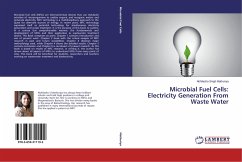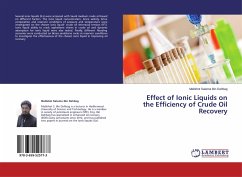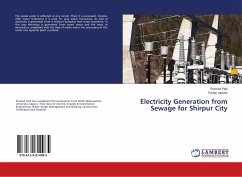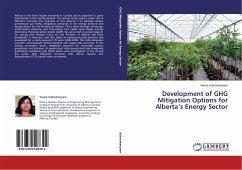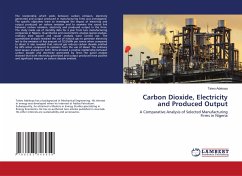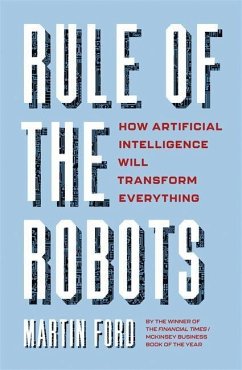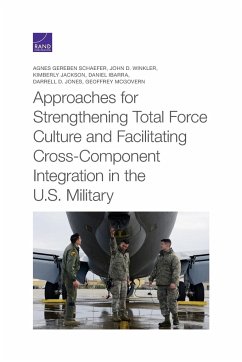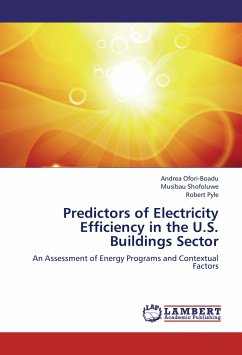
Predictors of Electricity Efficiency in the U.S. Buildings Sector
An Assessment of Energy Programs and Contextual Factors
Versandkostenfrei!
Versandfertig in 6-10 Tagen
40,99 €
inkl. MwSt.

PAYBACK Punkte
20 °P sammeln!
The quest for energy efficiency has led to the innovation and implementation of a wide range of energy efficient technologies. Despite the energy savings associated with these technologies, their diffusion has been slow in the complex U.S. sociotechnical environment. While critics disagree, advocates insist that energy programs promote the diffusion of energy efficient technologies and eventually reduce energy consumption. In order to contribute to this ongoing debate and to better understand the socio-technical environment which houses these technologies and programs, the relationships existi...
The quest for energy efficiency has led to the innovation and implementation of a wide range of energy efficient technologies. Despite the energy savings associated with these technologies, their diffusion has been slow in the complex U.S. sociotechnical environment. While critics disagree, advocates insist that energy programs promote the diffusion of energy efficient technologies and eventually reduce energy consumption. In order to contribute to this ongoing debate and to better understand the socio-technical environment which houses these technologies and programs, the relationships existing among energy consumption, energy programs and U.S. socio-economic factors were explored. An integrated approach towards providing energy efficient solutions in this post-modern era requires that all stakeholders understand these dynamics and consider them during their decision making process. The effective implementation of some energy programs could increase the diffusion of energy efficient technologies, and ultimately reduce U.S. electricity consumption. In the long term, this could lead to reductions in energy waste, environmental degradation and energy imports.



